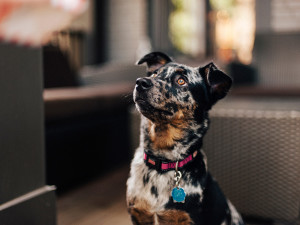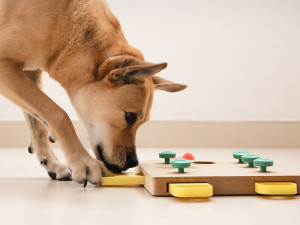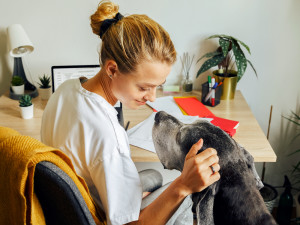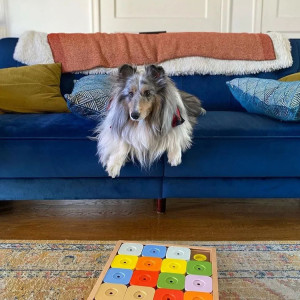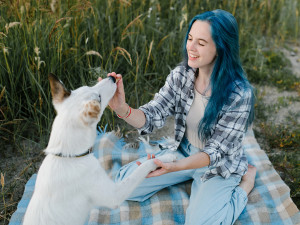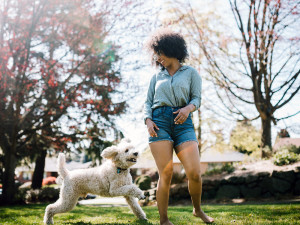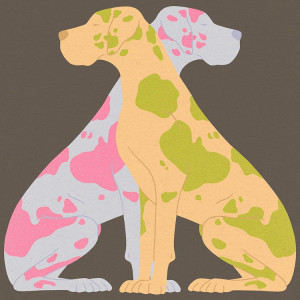Is Your Dog a Genius? A New Study Says It’s Possible
If only there were dog Jeopardy!.
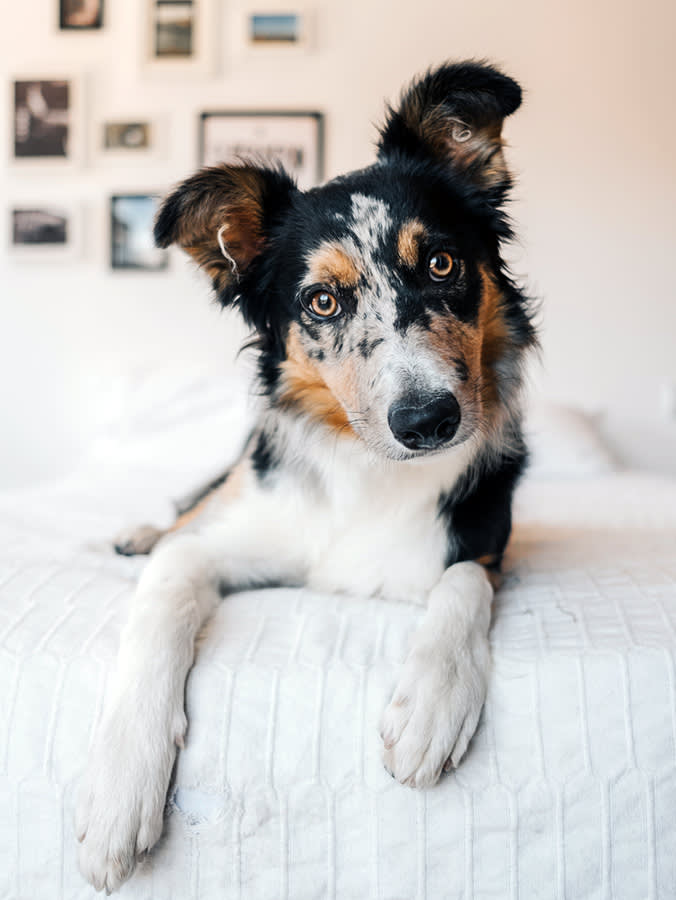
share article

Your pet wants you to read our newsletter. (Then give them a treat.)
If you’ve spent time hanging out with dogs — or scrolling through your dog-crammed TikTok feed — you’ve probably already figured out that some pups are a little more clever than others. All dogs are perfect (that’s a given), but they’re not exactly equally sharp. If you have a pup with some mega-impressive brainpower, science is now backing up your claim that they might (emphasis on might) be a legit, Matt-Damon-in-Goodwill-Hunting-level genius.
How researchers tested genius dogs
The study, published Thursday in Scientific Reportsopens in a new tab, observed 41 dogs who have “a vocabulary of object labels,” also known as “Gifted Word Learner” (GWL) dogs, and quite possibly geniuses. These A students were recruited for the “Genius Dog Challenge” through an online applicationopens in a new tab that asked dog parents to submit a video of their pups retrieving specific toys based on the name of the toys; the human had to stand outside of the room and ask their dog to retrieve one toy at a time out of a selection of at least three toys.
After the online application, some pups were selected for an online Vocabulary Assessment Test (VAT), which repeated the original task with the presence of researchers, plus collected answers to informal, semi-structured interview questions. They eventually found 41 dogs who knew the names of at least five toys.
The last step of the study was a questionnaire given to pet parents, which covered three topics with more depth: the dogs’ life history, their own experience in raising dogs, and how their dog learned the names of these toys.
In the end, they found that 56 percent of the dogs in the Genius Dog Challenge knew the names of at least 20 or more toys, 14 percent knew the names of 15 to 19 toys, 12 percent knew 14 to 10 toys, and 17 percent knew five to nine toys. The maximum number of toy names known by a dog was a whopping 86. Because researchers knew the dogs learned the names of toys very quickly, they later inquired, via questionnaire, whether the dogs had learned more toy names in the months following the VAT. In that questionnaire, 16 pet parents reported that their little Einsteins had learned the names of over 100 toys.
What did the genius dogs have in common?
Researchers were looking for a common thread between all these clever dogs but couldn’t quite find it. The dogs came from all walks of life, though almost all were from working breeds. Border Collies did make up 52 percent of them, but the rest were a more evenly spread mix of different breeds, including Labradors, Pomeranians, Corgis, and Australian Shepherds. The majority of the pups lived in homes with two caretakers, and 57 percent of the dogs participated in extracurricular training activities, such as obedience training, herding, and dog shows.
When it comes to the backgrounds of the pet parents, their experience varied, too. Twenty-six percent of them were first-time pet parents, 31 percent had had only one dog previously, and 34 percent had raised four or more dogs. Only three pet parents reported that a previous pet had known the names of more than three toys, and only three had a professional background in dog training.
So…how can you raise a genius dog?
Here’s the twist: According to researchers, it seems like you kinda…can’t. Or rather, you can’t intentionally raise a dog to be a genius. Three-quarters of the pet parents in the study said they initially did not train their dogs to learn the names of their toys; the pups started getting them on their own. Each of the pet parents said the dogs learned the names through play interactions, and 80 percent of them reported playing with their dog daily. The majority of the pet parents reported that “spontaneous learning seemed to be effortless.”
Researchers concluded that “the owners’ training skills are likely not the primary driver behind these dogs’ skill” — if that were the case, they would find multiple GWL dogs living together. In fact, three of the pet parents adopted a puppy during the course of the study, and those dogs did not learn the names of their toys, despite them using the same play and training methods.
So, basically, if your pup is a genius, you should feel plenty proud, but you can't really take the credit. According to the research, their smarts seem to come pretty naturally — and randomly. That means you probably can’t teach a non-genius pup to become a genius. Though, of course, providing your pup with tons of playtimeopens in a new tab — and lots and lots of toysopens in a new tab to learn the names of — is a good start.

Sio Hornbuckle
Sio Hornbuckle is a writer living in New York City with their cat, Toni Collette.
Related articles
![Dog looking for treats in an interactive dog puzzle toy]() opens in a new tab
opens in a new tab18 Best Interactive Dog Puzzle Toys
Let the games begin.
![Young woman sitting at desk petting her senior Great Dane]() opens in a new tab
opens in a new tabHow to Speak “Dog”
Lili Chin’s book Doggie Language illustrates how dogs communicate — beyond ear perks and tail wags.
![A dog sitting on a couch with a sudoku game on the floor.]() opens in a new tab
opens in a new tabSudoku Is the Newest Brain Game for Dogs
Let your dog win.
![girl with blue hair starting puppy training with white dog]() opens in a new tab
opens in a new tabPuppy Training 101: How to Train a Puppy
You gotta start somewhere.
![A woman with curly black hair playing with her white labradoodle dog outside]() opens in a new tab
opens in a new tab7 Games That Can Actually Teach Your Dog Something
Cue the Schoolhouse Rock! because learning can be fun.
![A woman holding a dogs paw and smiling.]() opens in a new tab
opens in a new tabNine Useful Tricks to Teach Your Dog
Go beyond the basics.
![Two colorful Great Danes illustration.]() opens in a new tab
opens in a new tabEver Ask Your Dog “Why Are You Like This?” DNA Is the Answer — Kind Of
This study says it’s actually less about what’s in their DNA and more about what’s on it.


